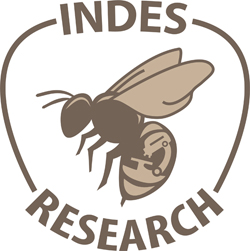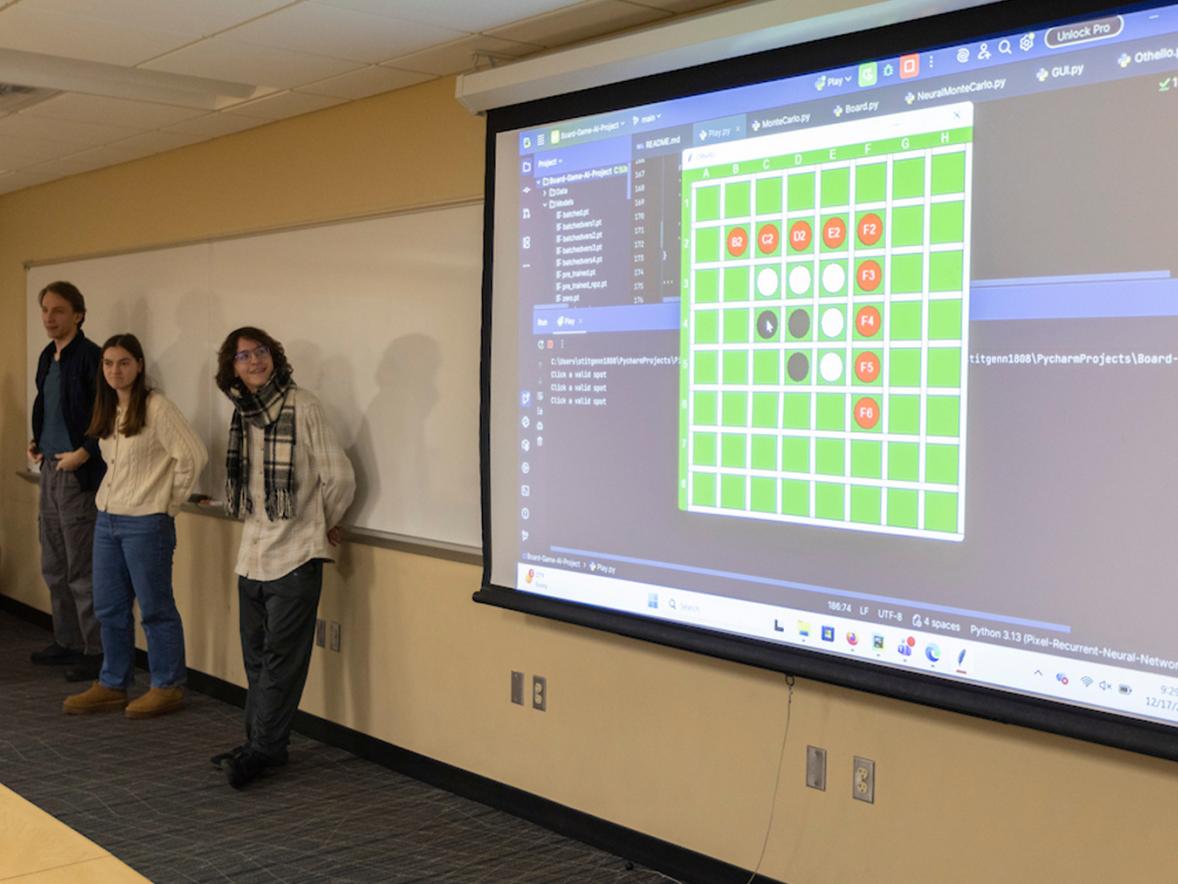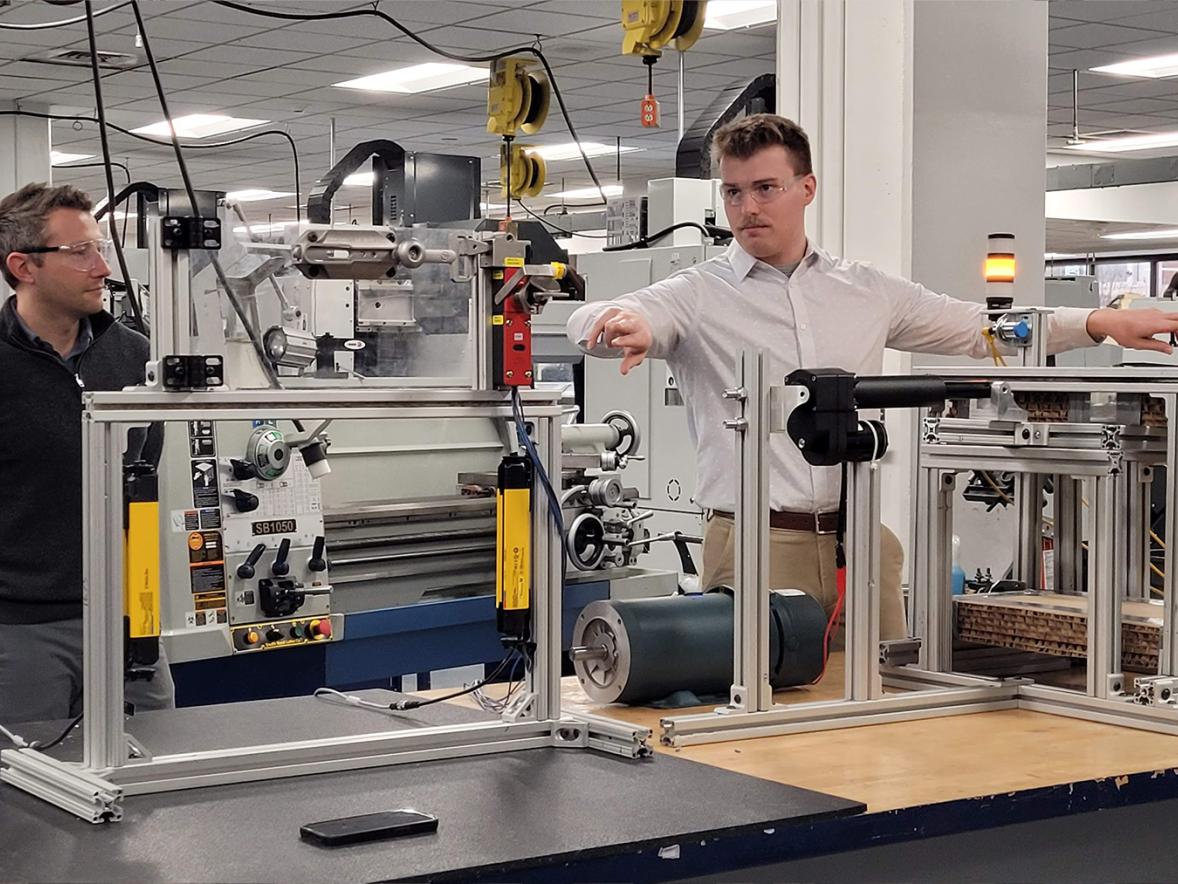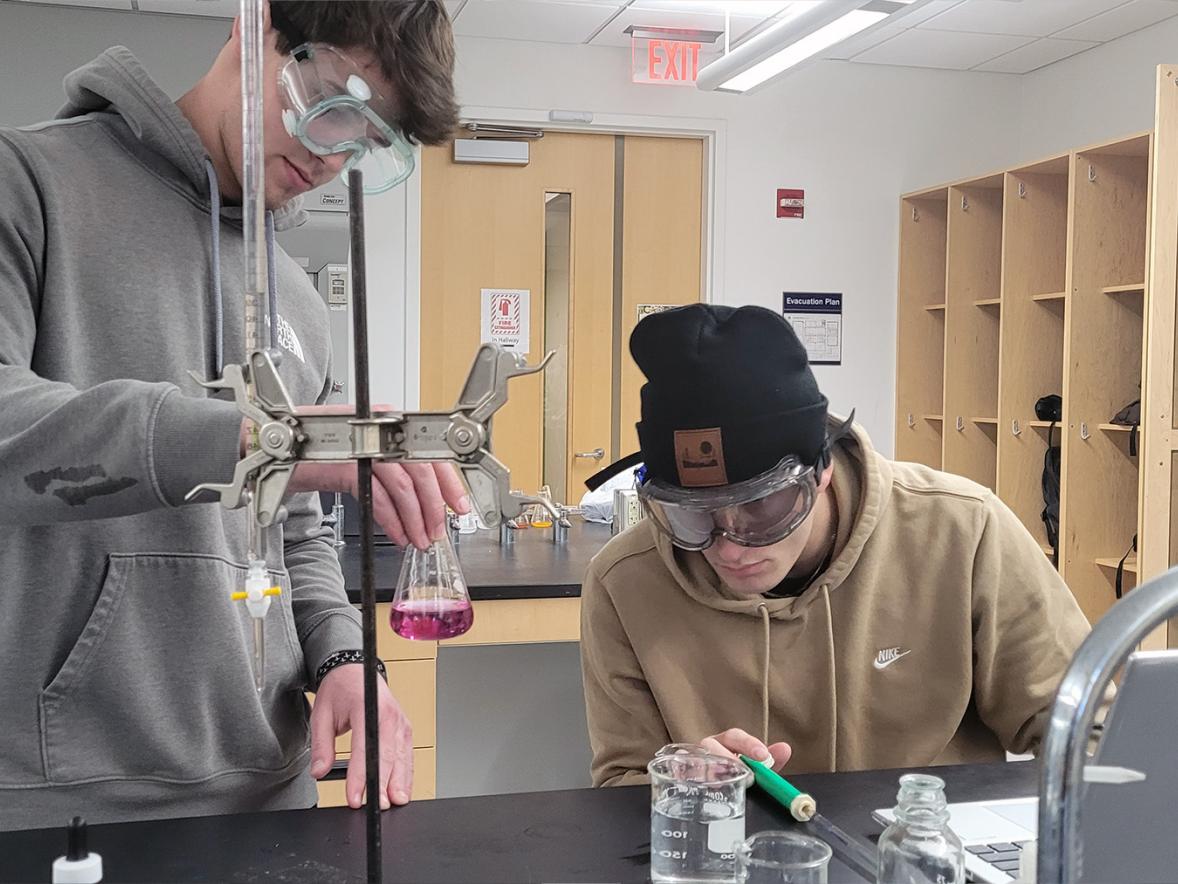New research by a UW-Stout professor on the disease threat to honey bees will be featured in a presentation organized by the Dunn County Beekeepers.
At 7 p.m. Monday, April 9, in room 110 of Jarvis Hall Science Wing, Associate Professor Jim Burritt will discuss recently discovered bacteria that appear to contribute to winter hive failure, an ongoing problem throughout the country.
 Jarvis Hall is at 410 10th Ave. E. The presentation is free and open to the public.
Jarvis Hall is at 410 10th Ave. E. The presentation is free and open to the public.
“The Honey Bee Pathosphere” talk will examine how infectious agents may be contributing to the failure of bee colonies. He will explain results from his fall 2017 sabbatical research on how diseases affect bees.
The research “led to the discovery of several new research methods and two newly discovered bacteria that appear to contribute to hive failure,” Burritt said.
In Dunn County, the winter hive failure rate has been as high as 80 percent in recent years, said Burritt, a longtime beekeeper.
 He also will detail a new effort by UW-Stout students to take their research nationwide. They hope to determine where certain honey bee pathogens are being found. The INDES project — Initiative for Nationwide Detection of Ss1 — is seeking samples and information from beekeepers throughout the U.S.
He also will detail a new effort by UW-Stout students to take their research nationwide. They hope to determine where certain honey bee pathogens are being found. The INDES project — Initiative for Nationwide Detection of Ss1 — is seeking samples and information from beekeepers throughout the U.S.
In December 2016, Burritt and several students published research about a new bacterium they discovered, Serratia marcescens strain sicaria, or Ss1.
Burritt is planning a second talk, detailing students’ efforts, “Stout Students and Honey Bee Research,” at 2 p.m. Wednesday, May 2, in the Cedar/Maple Room of the Memorial Student Center.
The talk will be part of UW-Stout Research Day and is sponsored by the Office of Research and Sponsored Programs and the university’s Nakatani Teaching and Learning Center.
The honey bee project at UW-Stout is in its seventh year and has involved hundreds of UW-Stout students doing research in classes for several different university programs and in locations beyond the classroom.
###
Photos
Jim Burritt
The UW-Stout INDES project — Initiative for Nationwide Detection of Ss1 — on honey bee research is going national.







